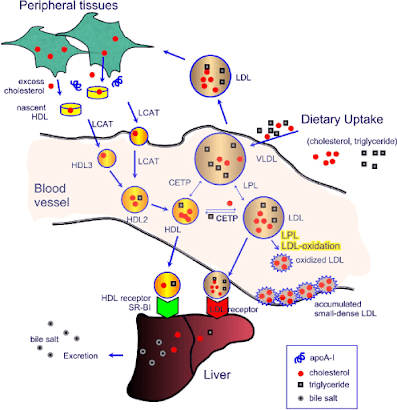Lack of enzymes, especially lipase deficiency, may cause vascular problems such as cardiovascular disease and high blood pressure. If the lack of lipase occurs in certain parts of the body, it may also cause obesity. It has been reported that obese patients have less lipase in adipose tissue. Dr. David Galton studied obese adults in Tufts University School of Medicine in the United States, and found that they all have enzyme deficiency in their adipose tissue, and even some people lack fat in their lipomas.
Usually animal tissue contains many lipases, but why do these people lack fat? Many experiments have shown that when food is cooked, lipase will disappear, such as some high-calorie foods such as meat, potatoes, etc., but these foods originally contained many lipases before cooking. The enzymes contained will almost be lost. Without lipase functioning, after excessive calorie intake, it will accumulate in the body to form fat, which accumulates in the liver, kidneys, arteries, and microvessels.
Foods lacking enzymes will cause a burden on the body. In addition to increasing body weight, it will also cause changes to organs. For example, exquisite foods that have been heat-treated, due to extreme lack of enzymes, will cause significant changes in the size and function of the pituitary gland. In contrast, if the secretory glands in the animal are removed surgically, the amount of enzymes in the blood will also change. Enzymes affect the glands that produce hormones, which in turn affect the secretion of enzymes.
The cooked food style will cause the pancreas and pituitary gland to fail due to excessive effects, and also the thyroid gland, which will make the body's reaction become dull and the body weight will increase. Calories in raw food are relatively less irritating, but can help the body maintain weight.
For example, pig farmers know that if they feed raw potatoes, the pigs will not gain weight, so they will cook the potatoes before they are fed to the pigs, so that they can be fattened and sold at a higher price. Think about it, the meat sold in the market is produced in this way. It contains high fat and low enzymes. After cooking, the enzymes are lower. This saturated fat makes it difficult for us to digest, so it accumulates in the body's arteries.
 Without proper decomposition by lipase, the fat eaten will be absorbed in an undesirable way, and will eventually run into the blood vessels and arteries, causing symptoms such as arteriosclerosis, hypertension, and high cholesterol. In the blood vessels, fat will settle in the blood vessels, blocking blood flow, making it difficult for blood to return to the heart, so that the heart will expand. These problems are caused by the following components:
Without proper decomposition by lipase, the fat eaten will be absorbed in an undesirable way, and will eventually run into the blood vessels and arteries, causing symptoms such as arteriosclerosis, hypertension, and high cholesterol. In the blood vessels, fat will settle in the blood vessels, blocking blood flow, making it difficult for blood to return to the heart, so that the heart will expand. These problems are caused by the following components:
. Saturated fat. (Partly from animal products eaten)
. Hydrogenated fat.
. Polyunsaturated fat.
We all know that polyunsaturated fats lower cholesterol, which is true, but polyunsaturated fats act like drugs. As stated in the book The McDougall Plan: "Polyunsaturated vegetable oils may cause health hazards. After people eat them, these polyunsaturated fats will lower cholesterol like drugs and cause the body to store A large amount of cholesterol is released into the gallbladder through the liver and then enters the colon. In the colon, excessive cholesterol is one of the causes of colon cancer." (In the rat experiment, feeding a lot of cholesterol and polyunsaturated fat, compared with feeding a lot of cholesterol and saturated fat, will cause more cancer.)
We know that the amount of enzymes in the blood and tissues of young people is higher than that of the elderly. Dr. Berker and Meyers have conducted experiments to find a group of people who have lipase in their blood. The content of is only half of that of young people. As a result, people who lack lipase will have symptoms such as arteriosclerosis, hypertension, and slow fat absorption rate.







No comments:
Post a Comment